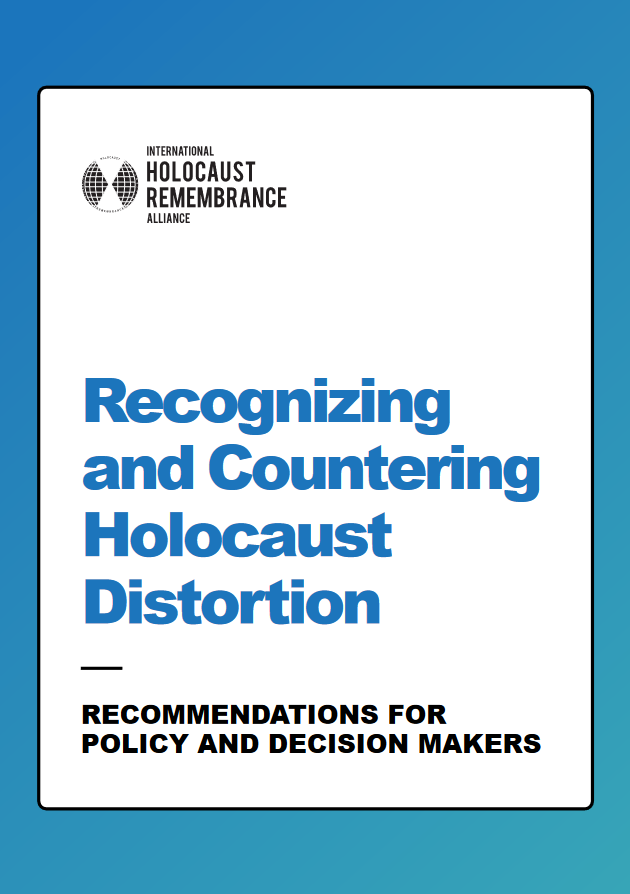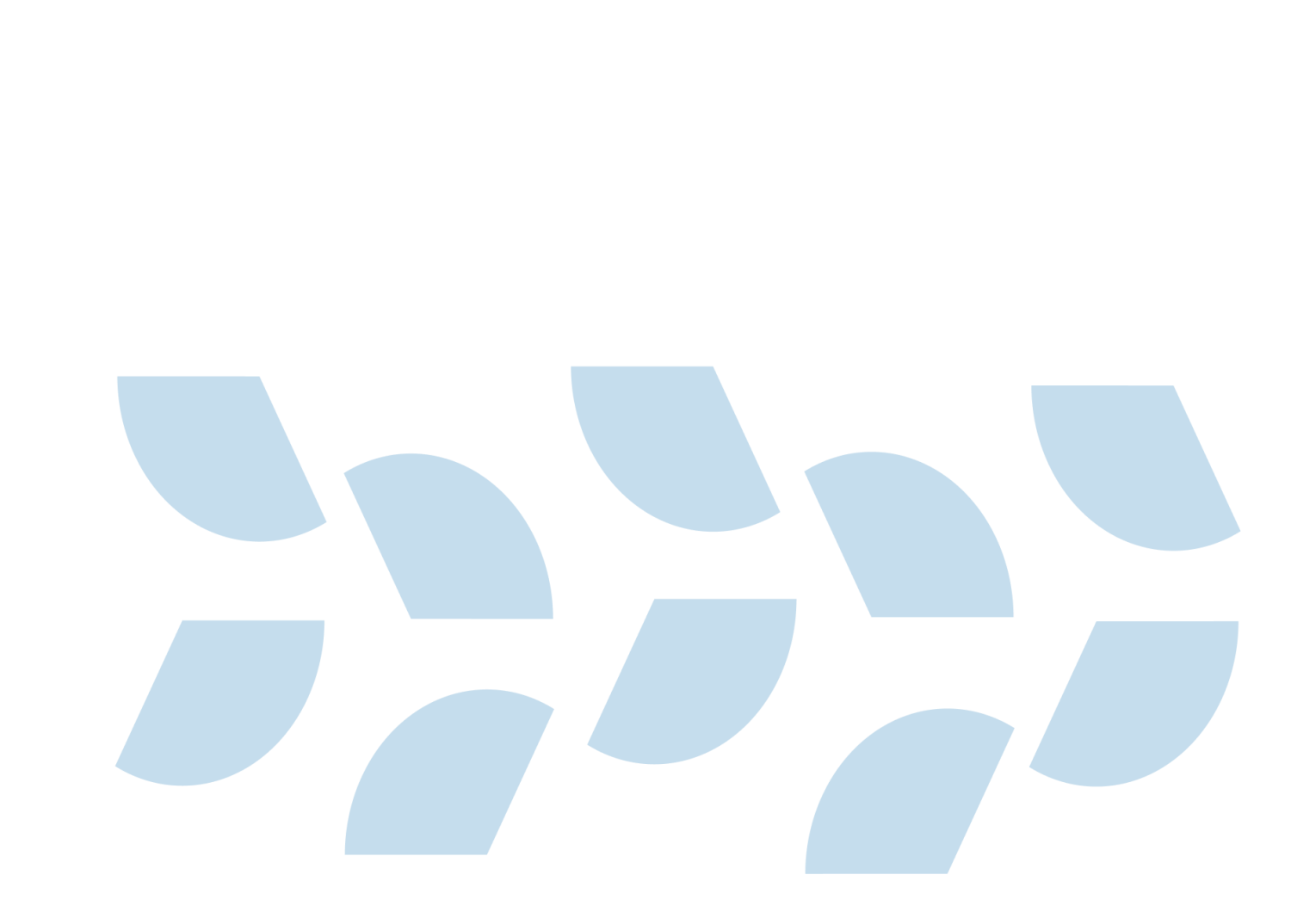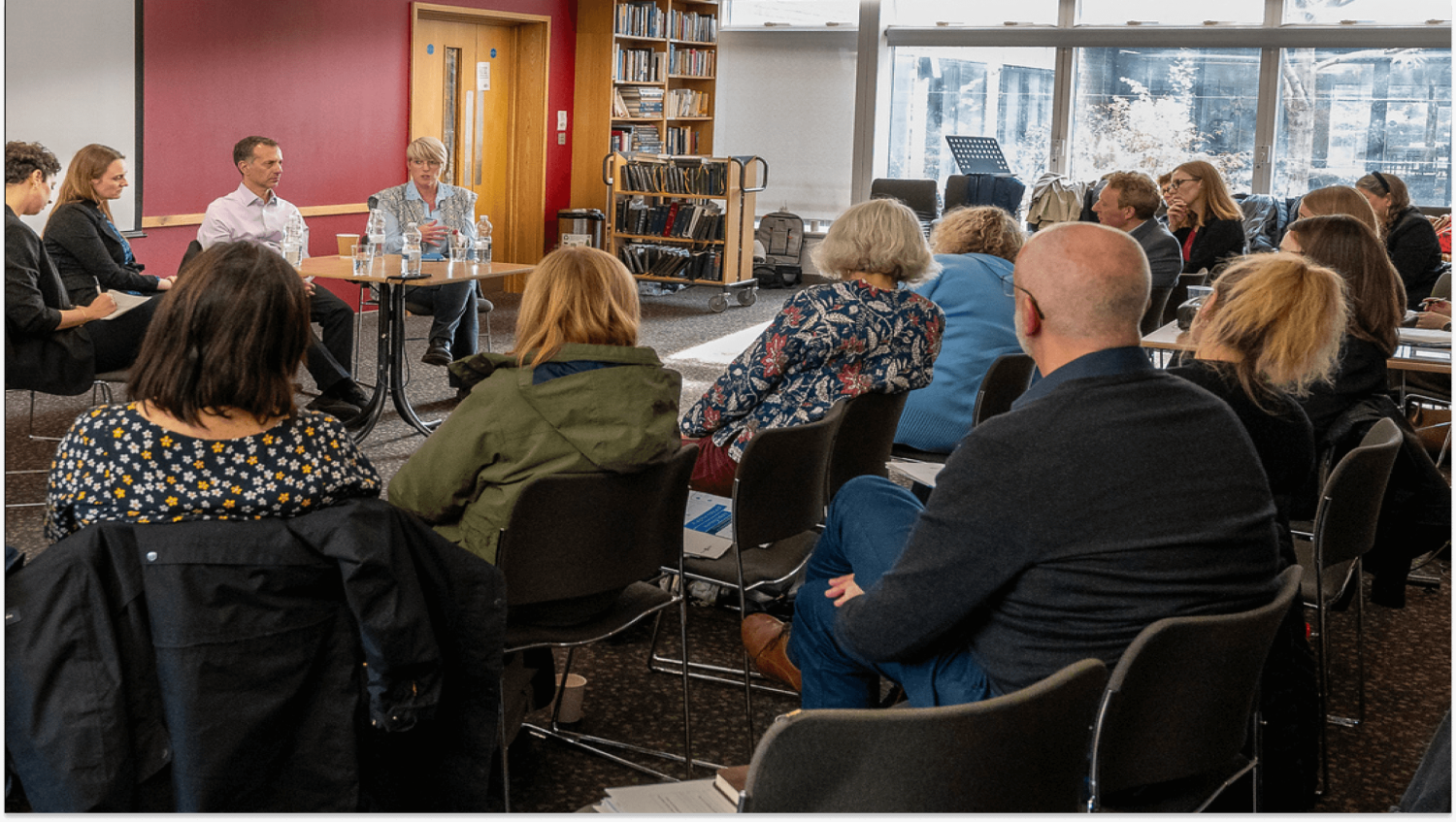


Confronting Holocaust Distortion in the Digital Age: Insights from the IHRA-UNESCO Capacity Building Training Program in London
As Holocaust distortion surges anew in today’s interconnected world, a critical question emerges, “Why now?”
In the recent IHRA-UNESCO Capacity Building Training Program held at New North London Synagogue, this question echoed throughout the discussions. The London implementation of the Training Program, an initiative of the UK–IHRA Presidency, brought together members of civil society organizations and policymakers to address the escalating challenge of Holocaust distortion and rising antisemitism.
IHRA Chair Lord Pickles, opened the workshop with a stark reminder of the paradox of the modern era: as access to information has expanded, so has the spread of misinformation.
“In a world more connected than ever through technology, why has Holocaust distortion resurged with such force?” he asked. He stressed that the decline of traditional media and the rise of social platforms have blurred the lines between fact and fiction, providing fertile ground for falsehoods to spread unchecked.
UK Delegate to the IHRA, Michael Newman, Chief Executive of the Association of Jewish Refugees, echoed these sentiments, pointing to the collapse of newspaper readership and the influence of social media influencers who shape public opinion, often regardless of credibility. This shift, he noted, has not only undermined the integrity of news but has allowed historical distortions to proliferate unchecked, creating new challenges for Holocaust remembrance and education.
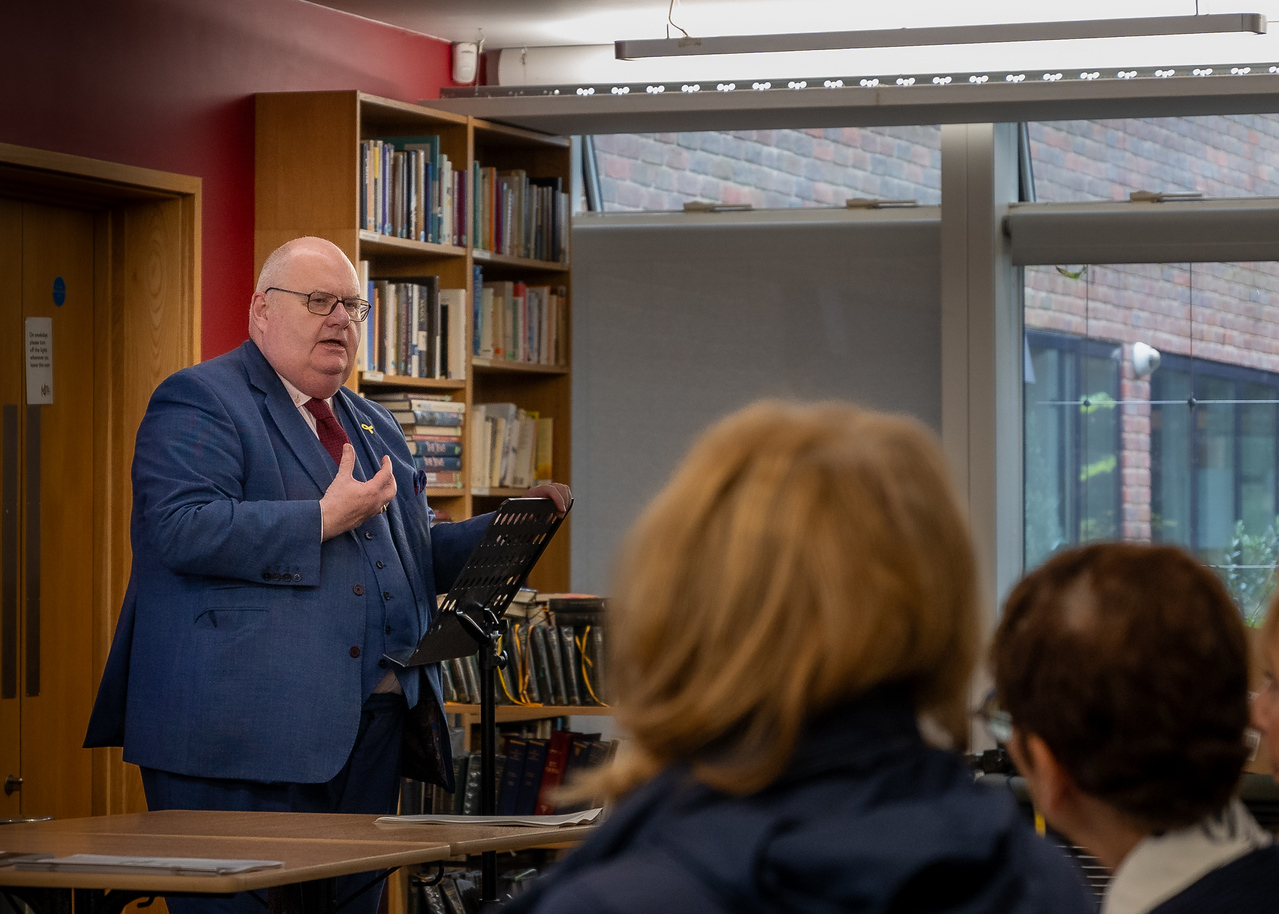
IHRA Chair Lord Pickles at the IHRA-UNESCO Capacity Building Training Program. Adam Soller Photography ©
Civil Society’s Role and the Potential of Technology
The first day of the workshop delved into the potential and pitfalls of technology in Holocaust education. While platforms like TikTok and Meta have taken steps to redirect users searching for Holocaust-related content to credible resources, participants also recognized that technology remains a double-edged sword. Artificial intelligence and social media can help educate but also amplify distortive narratives. Discussions included practical strategies for engaging community stakeholders to foster an inclusive, historically accurate narrative, as well as examining successful initiatives by organizations such as the Holocaust Educational Trust, Community Security Trust, Anne Frank Trust, and the Association of Jewish Refugees that support Holocaust education and remembrance.
Fictional case studies led by participants illustrated possible strategies to counter distortion. Many discussed the importance of involving local authorities, educators, and community leaders, and suggested partnerships with local media and public services to disseminate positive messages in the digital space.
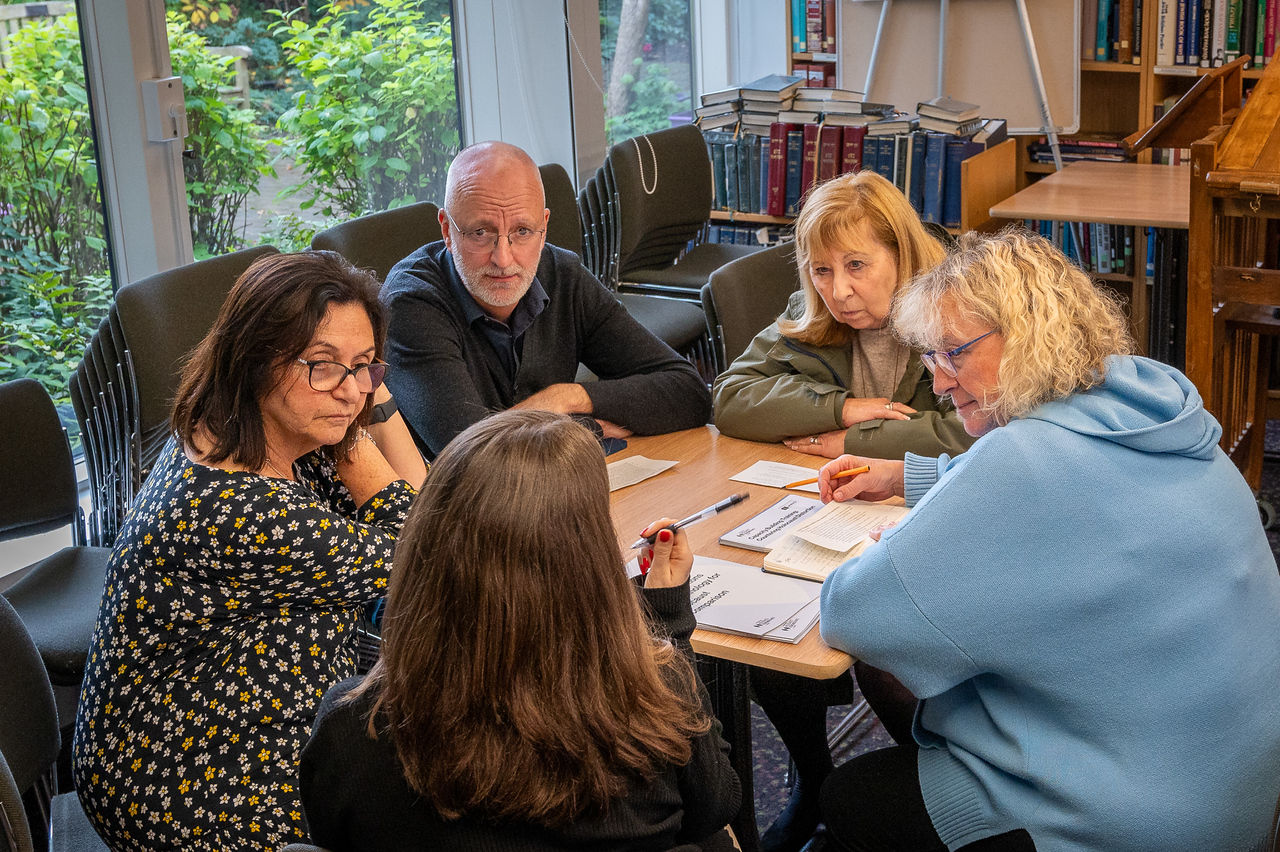
Participants at the IHRA-UNESCO Capacity Building Training Program. Adam Soller Photography ©
Policymakers and the Intersection of AI and Conspiracy Theories
On the second day, the focus shifted to the unique challenges policymakers face, especially with the rise of artificial intelligence and conspiracy theories. UNESCO’s recently published report on the impact of AI on Holocaust memory served as a focal point, and a video on Holocaust distortion further contextualized the dangers posed by unregulated digital spaces.
UK Delegate to the IHRA, Martin Winstone, Senior Historical Advisor at the Holocaust Educational Trust, delivered a keynote lecture on the cultural and political influences shaping public understanding of the Holocaust. “The history of a nation profoundly impacts how the Holocaust is remembered,” he explained. Martin highlighted that public narratives often evoke the Holocaust as a symbol of absolute horror, leading some to make ill-considered comparisons that dilute its unique significance. He also explored how recent conspiracy theories, like anti-vaccine and anti-lockdown protests, can converge with antisemitism, giving rise to distortive rhetoric both online and offline.
A case study discussed was the 1983 plaque at Bradford Cathedral commemorating the Anti-Bolshevik Bloc of Nations (ABN). Established in 1943 in Nazi-occupied Ukraine, the ABN’s origins were linked to anti-Soviet and antisemitic agendas, and its Western endorsement during the Cold War era was largely due to a shared opposition to communism. Today, as participants noted, such memorials present a challenge for Holocaust education, as they necessitate nuanced discussions that confront uncomfortable aspects of historical memory while fostering understanding of their contemporary implications.
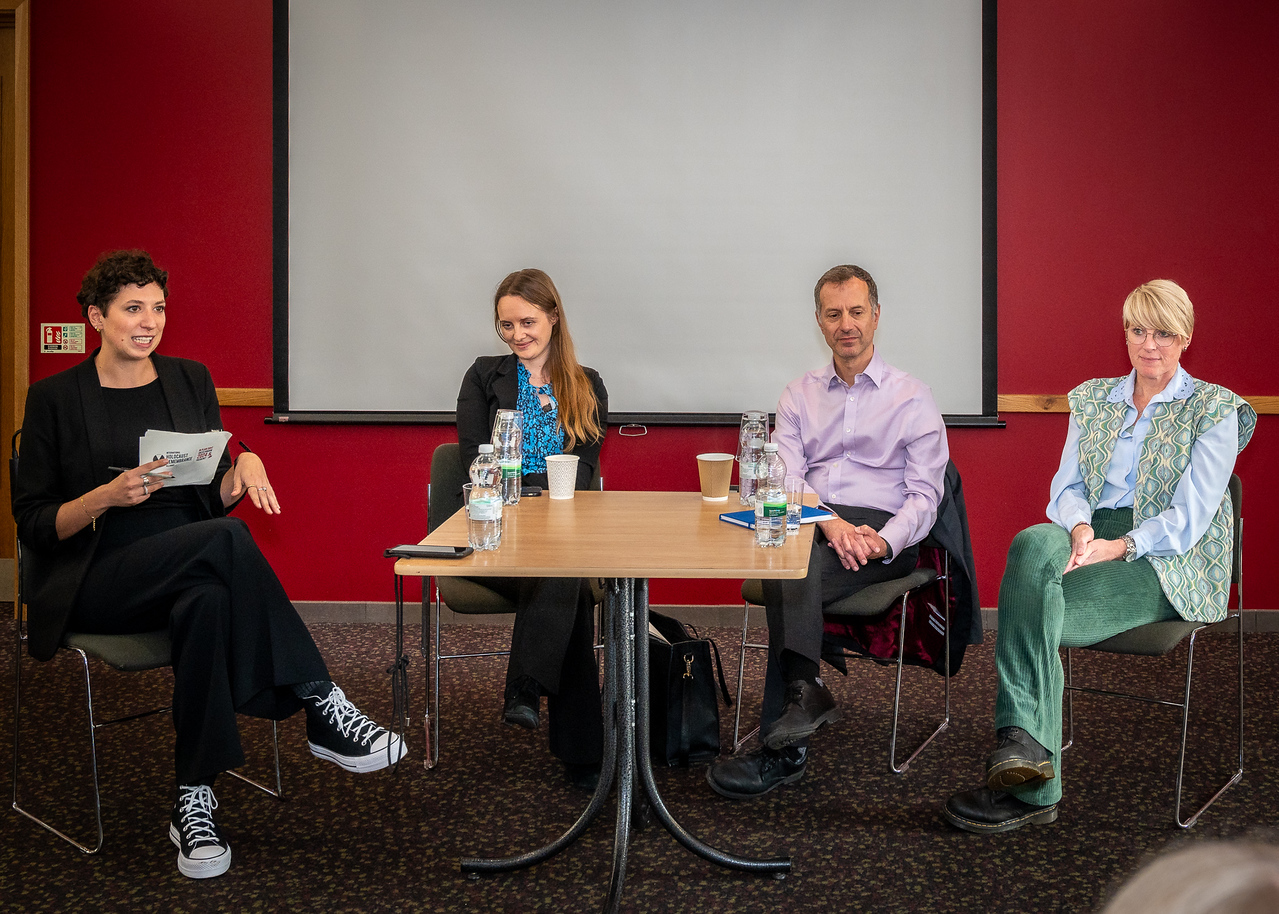
A three person panel at the training included Dutch Delegate to the IHRA Jurmet Huitema– de Waal (Anne Frank House), Heather Mann (Associate Project Officer at UNESCO), and Dave Rich (Director of Policy at the Community Security Trust). Adam Soller Photography ©
Collective Responsibility and Local Action
The event also included a panel discussion featuring Dutch Delegate to the IHRA, Jurmet Huitema– de Waal from the Anne Frank House, Heather Mann, Associate Project Officer at UNESCO, and Dave Rich, Director of Policy at the Community Security Trust. Jurmet highlighted the importance of empowering youth as change-makers in their own communities, with an emphasis on safe, impactful approaches to countering distortion. Moreover, Heather emphasized UNESCO’s commitment to working with education ministries globally, underscoring the value of digital literacy and responsible engagement in online spaces as critical tools in combating hate speech and Holocaust distortion.
Dave Rich addressed how antisemitism often finds new expression in political discourse, such as the direct comparisons between the Holocaust and current conflicts. He observed that these analogies, often promoted for shock value, diminish the Holocaust’s specific historical meaning. Dave also emphasized that education around the Holocaust must also include discussions on how such comparisons perpetuate division, encouraging audiences to critically evaluate these narratives.
In small-group workshops, participants discussed long-term strategies for fostering digital literacy, calling for sustained education initiatives rather than “one-hit-wonder” trainings. The discussions underscored the importance of ongoing mentorship for teachers and the need for resources that underscore the “why” behind Holocaust education to foster internal motivation. Participants explored regulatory approaches to AI, considering both industry-led self-regulation and government intervention to prevent the misuse of digital platforms for spreading hate and distortion.
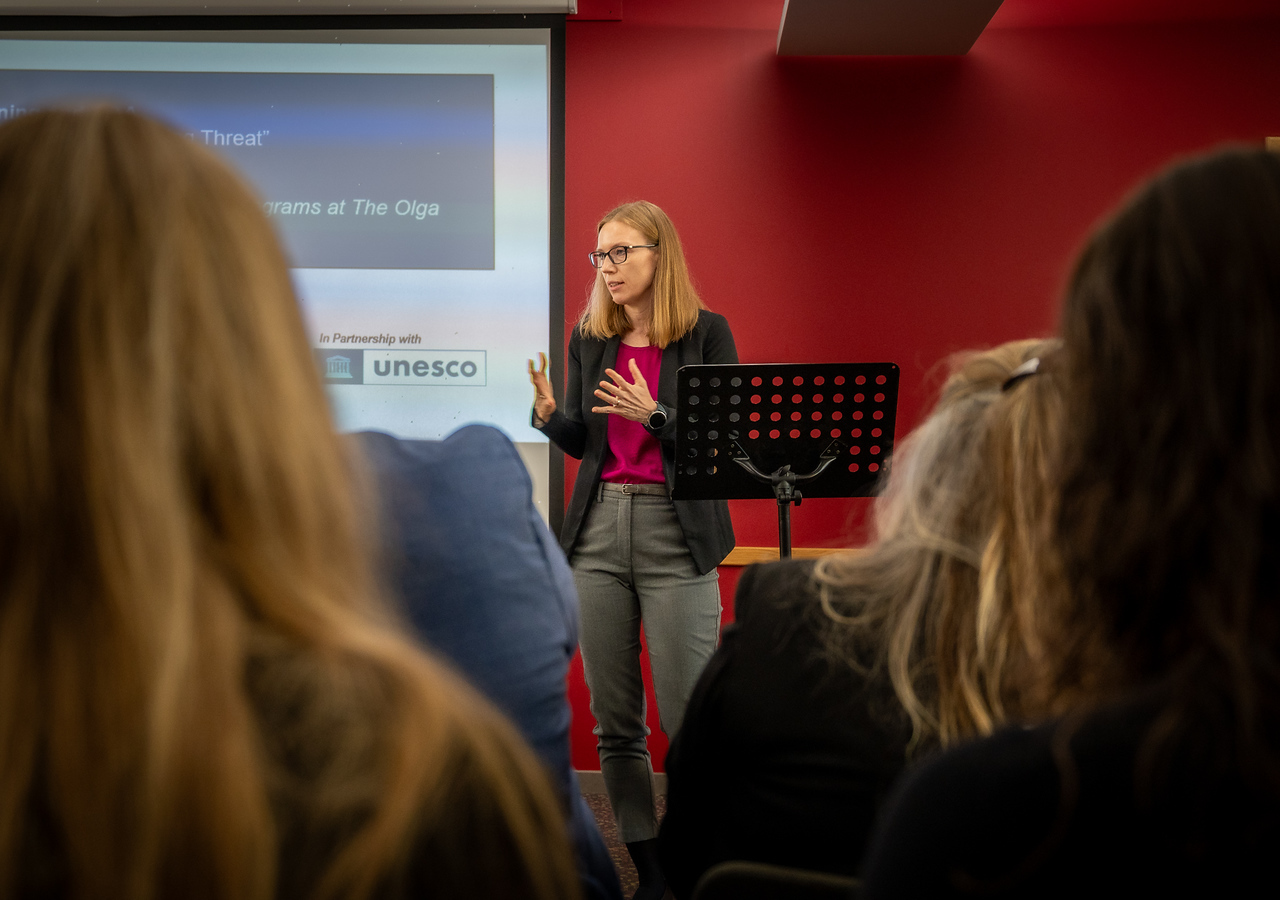
Dr. Oana Nestian-Sandu, Training Facilitator and Educational Expert to the IHRA-UNESCO Capacity Building Training Program. Adam Soller Photography ©
Building Resilience and Shaping the Future
As the London Capacity Building training program concluded, the collective message was clear: the fight against Holocaust distortion is not merely about preserving history but about shaping a society resilient to misinformation. Education, technology, and community action must converge to create a future where Holocaust memory remains robust and protected against distortion.
By fostering collaboration and understanding across sectors—from local authorities and schools to civil society organizations and policymakers—the event underscored that safeguarding Holocaust memory is a shared responsibility. Every effort, from advocacy to practical grassroots initiatives, contributes to a larger mission of historical integrity and societal resilience. The insights and strategies discussed over these two days highlighted a pathway forward, one that encourages local communities and global networks alike to engage proactively in the preservation of historical truth.
Learn more about the IHRA-UNESCO Capacity Building Training Program
The International Holocaust Remembrance Alliance (IHRA) partnered with the United Nations Educational, Scientific and Cultural Organization (UNESCO) to develop this practical training program to help policymakers, educators and civil society to understand what it is, why it is harmful, and how to counter it. The program provides a comprehensive platform of practical tools, examples and resources to learn about and prevent Holocaust distortion.


